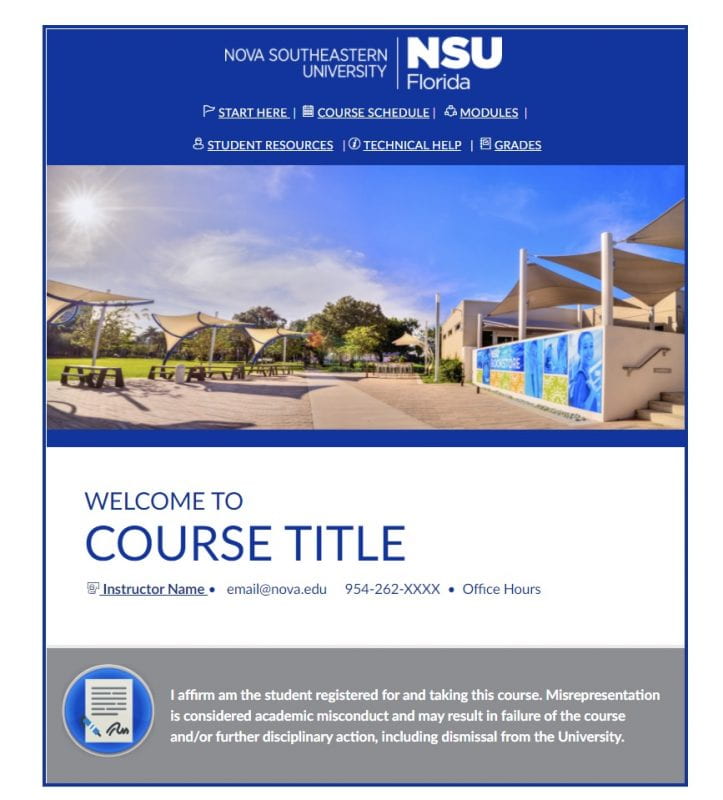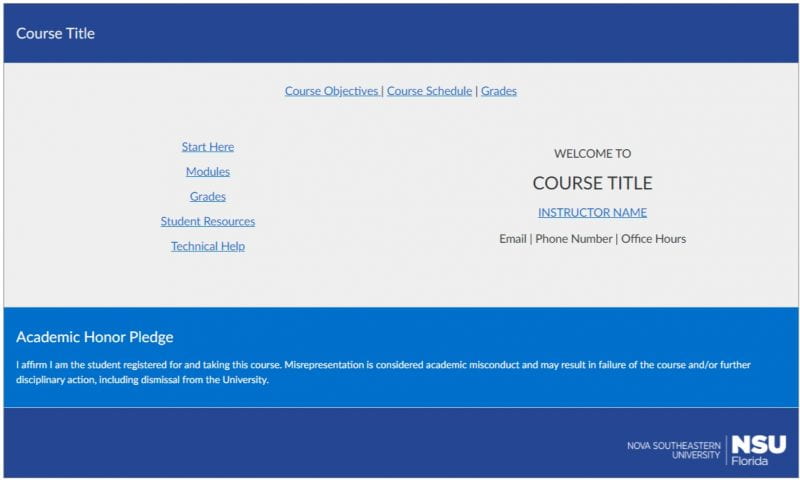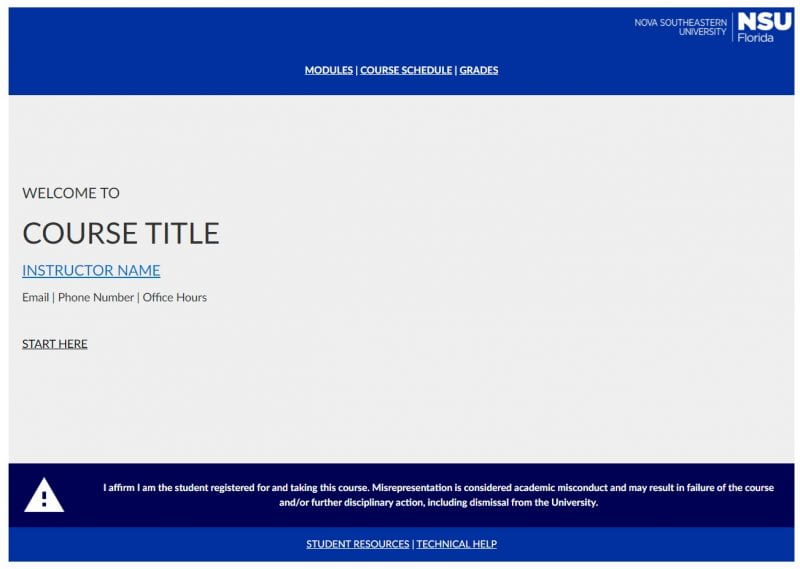Enhance the Quality of Your Online Course- New LEC Course Templates are Here!

As a part of the Learning and Educational Center’s continuous efforts to promote course quality and academic success, we have created a fresh new look with three new Canvas Course Template options. The new template pages have a sleek, visually appealing look and feel while remaining quality-focused to assist faculty in creating courses that provide organization and transparency for students. These templates can be used individually as a complete package or pages from different templates can be combined to meet your needs. The new Course Template options are based on the Backwards Design model as well as the essential standards of the Quality Matters (QM) rubric.
Templates for Learning
The templates are designed to help you modify your courses to be accessible and inclusive of the diverse needs of all students. Drawing upon the collective research of professional organizations such as Quality Matters and the Online Learning Consortium, we know that clear course organization enhances the overall learning experience. Additional recommendations include keeping things simple by driving students to central locations within the course for ease of access to relevant course information and materials. For instance, students should be able to access readings, assignments, and supplementary resources on the “Module Overview” pages. You may want to avoid having students click several links or scrolling endlessly to locate pertinent information. Students find this approach frustrating and it detracts from the overall learning experience.
The new Course Template design options feature a placeholder for the name of your course as well as a link for quick access to your contact information. The new Homepages contain links to critical course resources such as:
- University Resources
- Meet Your Instructor
- Modules
- Grades
Template A Home Page
Template B Home Page
Template C Home Page
Template Features
The LEC sought to improve the online delivery structure for courses and make it a little easier for instructors and students to access and plan efficiently for course activities. Here are a few examples of what is included in the new template pages.
- Instructions for how to access and use template pages.
- Editable weekly module structure that includes the following features: a weekly module overview, a read section, a watch section, and a complete section (note: appropriate citation methodologies are promoted and encouraged followed by descriptions and significance explanations for each curricular content item).
- Explicit connections to course learning objectives including the lecture, readings, viewing Editable assignment templates which include assignment instructions, due dates, and submission options.
- Inclusion of a variety of content types (i.e., Video, text, documents, links) and course activities (i.e., Discussions, quizzes, assignments) are encouraged.
- A personalized welcome which includes: a welcome message from the instructor in narrative form either in a video format on the “Course Overview” page, a welcome letter on the “Meet Your Instructor” page, or use both formats.
- Instructional “how-to” student video links to further guide students who may be new to the online environment or who have not used specific tools in the past.
- A modular layout for the course with the following sections: course information, how-to videos, assignments and an example module for weekly content.
The new LEC templates are more than just a new look for course development. It’s a commitment to the continual process of improving the quality of an online course, which is a primary principle of the Quality Matters (QM) framework. QM does not evaluate online teaching, nor is it an evaluation of the online instructor. It is focused solely on the design of the course.
If you would like to get a better look at the Templates and see directions for bringing them into your course check out this link on the LEC website.
Resources:
References:
Hunn, K. & Hughes, L. (2014). Autonomy among thieves: Template Course Design for Student and Faculty Success. Journal of Educators Online, 11(2), 1 – 31.


